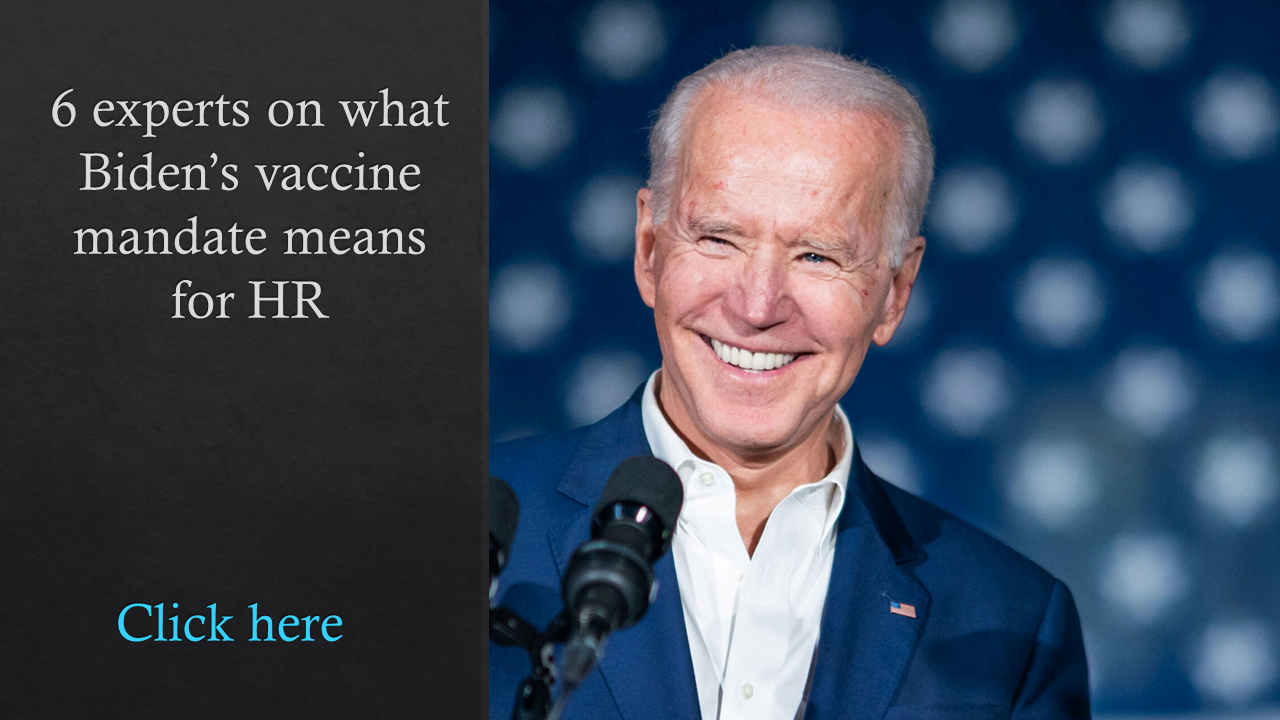The discovery of the new COVID-19 variant, Omicron, has healthcare leaders concerned about another surge in the pandemic that has now lasted nearly two years. For employers, it’s reiterating the importance of a watchful eye, agile response and continued effort to keep employees safe during the evolving pandemic.

“The Omicron variant underscores what we already know–employers must remain agile and flexible in the face of the pandemic and the changing workforce,” says Danielle Capilla, vice president of compliance, employee benefits, at Alera Group, a Deerfield, Illinois-based insurance and wealth management firm.
Capilla adds that, although news of the new variant–which was first discovered in South Africa and which U.S. health officials confirmed Dec. 1 has officially been detected here–is important to watch, information on the variant and its severity, as well as on the effectiveness of vaccines as it relates to this variant, is still pending. Health experts say they will know more about Omicron in the coming weeks.
“Until that happens, the Omicron variant remains something to continue watching and learning about before making decisions with large impacts on employee populations,” she says.
As was the case with the Delta variant, which started surging nationwide in late summer and prompted swift and drastic action by company leaders, employers may have to change plans and put more safety measures in place to protect employees and keep workplaces safe. In response to the surge of Delta after what some had hoped was the beginning of the end of the pandemic, many employers nixed return-to-office plans, reinstated mask mandates in offices and changed course on COVID-19 vaccines. Scores of employers moved from encouraging vaccines to requiring them for employees.
Vaccination mandates for employees are on the rise–due to both the rising Delta variant and President Biden’s announcement that he would require employers with 100 or more workers to implement a COVID-19 vaccination requirement or offer a weekly testing alternative to those who refuse or are unable to receive a vaccine. Though Biden’s mandate is on hold due to legal challenges, research out this week from consulting firm Willis Towers Watson finds that 57% of respondents either require or plan to require COVID-19 vaccinations for their employees. The survey of 543 U.S. employers was conducted Nov. 12-18, before the discovery of Omicron.
 Although the effectiveness of existing COVID vaccines on Omicron isn’t clear, the presence of the new variant may spur even more employer action on vaccines–both regarding the primary shots as well as boosters.
Although the effectiveness of existing COVID vaccines on Omicron isn’t clear, the presence of the new variant may spur even more employer action on vaccines–both regarding the primary shots as well as boosters.
Related: COVID booster shots are here. What should employers do?
“Vaccinations continue to be one of the most important ways to protect employees and the community from waves of infection,” says Dr. Jeff Levin-Scherz, population health leader at Willis Towers Watson. “Getting employees vaccinated now, before Omicron is widespread in the U.S., could prevent substantial illness and business disruption.”
In addition to staying the course on, and beefing up, safety and health measures, employers will likely continue to step up employee communication about the latest COVID-19 developments–a practice many company leaders have said is a lasting lesson of the pandemic. Being transparent about how organizations are handling COVID-19 is important, HR leaders say.
See also: OSHA suspends vaccine enforcement; what’s the next move for HR?
 “Where we’ve focused through the entire pandemic is being very open, honest and constantly being in communication with our associates,” says Lindsey Lanzisero, H&R Block’s vice president of total rewards. “People have been very, very appreciative of us being transparent and not trying to have all the answers because we don’t and everybody knows we don’t,” she says, adding that practice will continue as information comes to light on Omicron.
“Where we’ve focused through the entire pandemic is being very open, honest and constantly being in communication with our associates,” says Lindsey Lanzisero, H&R Block’s vice president of total rewards. “People have been very, very appreciative of us being transparent and not trying to have all the answers because we don’t and everybody knows we don’t,” she says, adding that practice will continue as information comes to light on Omicron.
The most important thing employers can do right now, experts say, is continue to focus on what they’ve been doing as Delta continues to hit many parts of the U.S., like boosting vaccination rates and keeping workplaces safe–and have plans in place to be ready for whatever Omicron holds.
“Companies can start to make contingency plans for workplace safety through masks, distancing and remote work if Omicron is found to be more contagious, especially if it decreases vaccine effectiveness,” Levin-Scherz says.

